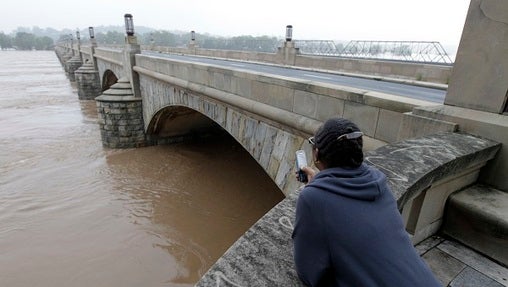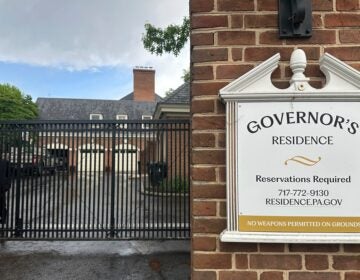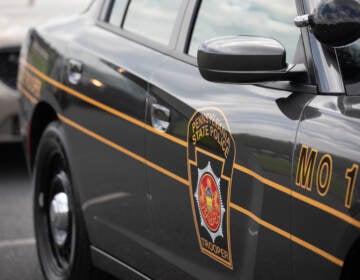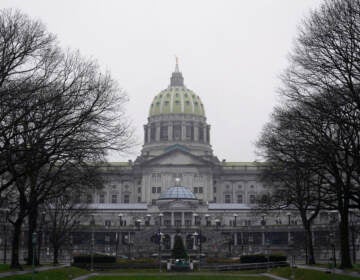Pa. fuel tax meant for bridge repair went to state police instead
From 2011 to 2017, $4.2 billion that could have gone toward repairing hundreds of structurally deficient bridges around the state has gone to fund State Police operations.

File phtoto: Harrisburg's Market Street Bridge is one of the roughly 3,000 classified as in need of repairs. (Alex Brandon/AP Photo)
In theory, Pennsylvania could be spending billions more to update aging roads and bridges.
But instead, the money is being rerouted to help fund State Police operations. The convoluted funding scheme has long been criticized by Harrisburg. But a new audit has given a more detailed picture of where the money is going.
Pennsylvania has almost 3,000 bridges classified as structurally deficient, though state Auditor General Eugene DePasquale said Thursday that tally has actually been halved since 2008.
Over six years, $4.2 billion that could have helped fix those bridges has instead gone to State Police, he said.
The money mostly comes from the commonwealth’s fuel tax; at 57.6 cents, it’s the highest in the nation.
“There’s an inherent deal,” DePasquale said. “You’re going to have this high gas tax, but it’s going to go to fund roads and bridges. And now when they find out it’s not happening, I think that gets people upset.”
According to state Transportation Secretary Leslie Richards, Pennsylvania has fifth-largest state-maintained road system in the nation, and the third-largest state-maintained bridge system.
The department’s overall budget is $10.2 billion, and it allocates $2.5 billion to construction projects annually. Richards said, last year, $802 million went to state police.
In recent years, state lawmakers have been calling for another way to get police funding.
Gov. Tom Wolf has unsuccessfully pitched a few options, such as a per-person fee for communities that rely on State Police coverage.
In his latest budget proposal, he suggested a sliding-scale fee that would be higher for bigger cities that don’t have their own police forces than it would for smaller ones in the same position.
So far, those proposals have had a difficult time gaining purchase in the state Legislature.
WHYY is your source for fact-based, in-depth journalism and information. As a nonprofit organization, we rely on financial support from readers like you. Please give today.





